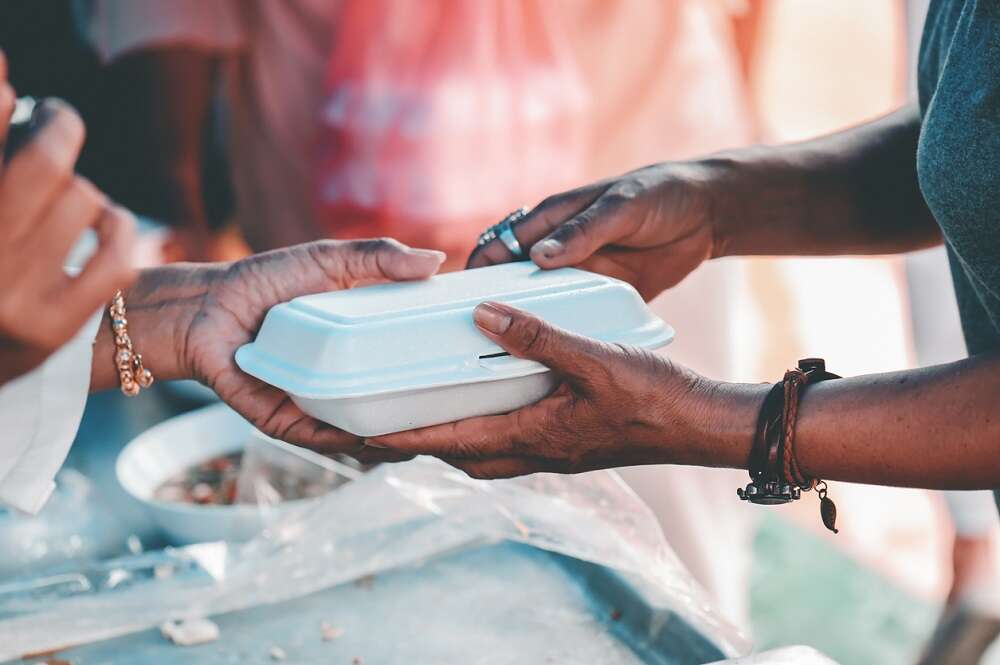
By Mark McCulloch, Operations Director at BaxterStorey, the UK’s biggest independent foodservice provider, providing workplace dining and hospitality across B&I, education, financial and banking sectors.
The education sector shapes our bright young minds of the future, nurturing and developing students in preparation for their future careers. University catering teams play an important role within this, supporting student development with providing nutritious and delicious food which helps wellbeing including concentration and good health. When the pandemic restricted students from attending classes in person, we had to rethink our offer and diversify, finding new opportunities to support our universities and local communities through our love of serving quality good food.
Our BaxterStorey team at Queen Margaret University (QMU) responded immediately, collaborating with Edinburgh-based social enterprise Empty Kitchens, Full Hearts and Carberry Residential Home to cook and distribute over 1,500 portions of hearty, vegetable soup to vulnerable adults locally during the height of the pandemic
Added to this, our chef Davie Beattie volunteered to work shifts in the kitchen at Carberry Residential Home in Musselburgh, to cover for members of their team who had to self-isolate. Whilst head chef Richard Paton and sous chef Allan Scott baked fruit scones and a delicious crumble for the residents, using rhubarb donated from the local community.
Whilst we continued to volunteer our time where we could, we were also afforded an incredible opportunity by QMU to diversify our offer; and the team, led by General Manager Julie Smith, transformed the on-site bar and café into a shop for students and the wider community to buy essential foods, including eggs, flour, and pasta. This approach meant the team could continue to serve the limited number of students on campus something, whilst also developing new, long-lasting relationships with the local community and still generate revenue during a difficult time.
During the first week, the team was turning over less than £20 a day, which over time built up to almost £1,000 a day due mostly to the relationship building between our team and our customers. We got to know customers by name and from a safe distance, learning their regular orders to give them that personal experience, and to this day, many still see us as a community hub who became a support mechanism during the most difficult parts of the pandemic.
The team received some very heartfelt feedback from customers including from one saying: “a huge thank you to the team at Maggies who delivered groceries to us while we were self-isolating – so helpful and friendly, plus the groceries were amazing quality”; as well as others praising the upbeat spirit of our café team: “we can’t thank you enough, you have put smiles on everyone’s faces during a terrible time”.
As restrictions eased and students returned to university, our biggest concern was how we were going to balance the new client base with our students and staff. However, given the difference in lifestyles and schedules, it has balanced out well and we see longevity in this new business model; the local community fits in perfectly against our peak points, and we are continually working hard to bring fresh, nutritious, and delicious dining to both client bases.
Feedback from QMU has been very positive, with Sarah Whigham, Head of Commercial Services for Queen Margaret University saying ‘Julie and the BaxterStorey team reacted incredibly to the challenges we faced due to the Covid pandemic, creating innovative ways to carry on operating throughout, focussing in particular on our students stuck on campus and our local community. The investment made at that time not only allowed us to foster these important relationships but has resulted in a wonderful ambiance back on campus now, busy with students, staff and local community and has meant that our recovery in this first semester has bucked the trend being experienced by other operators.’
Could more schools, colleges and universities benefit from a similar approach? I do believe there are several missed opportunities by not thinking outside the box, but I recognise that we are extremely fortunate by QMU’s approach – which has been incredibly supportive and willing to give us the flexibility to try new and creative ideas, often with a minute’s notice.
The landscape of universities and business in general has changed completely and we as an industry need to change alongside it to ensure longevity. This will take time – building this new arm to our business at QMU has been 18 months in the making, and we’ve had several successes and failures throughout – but it’s worth the investment.


